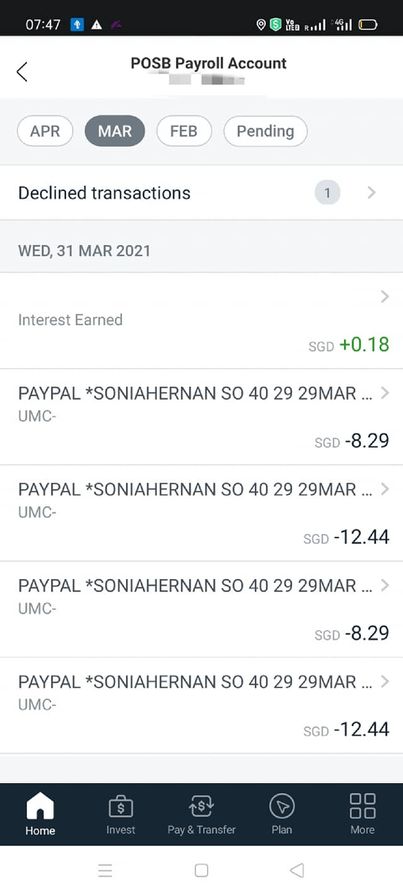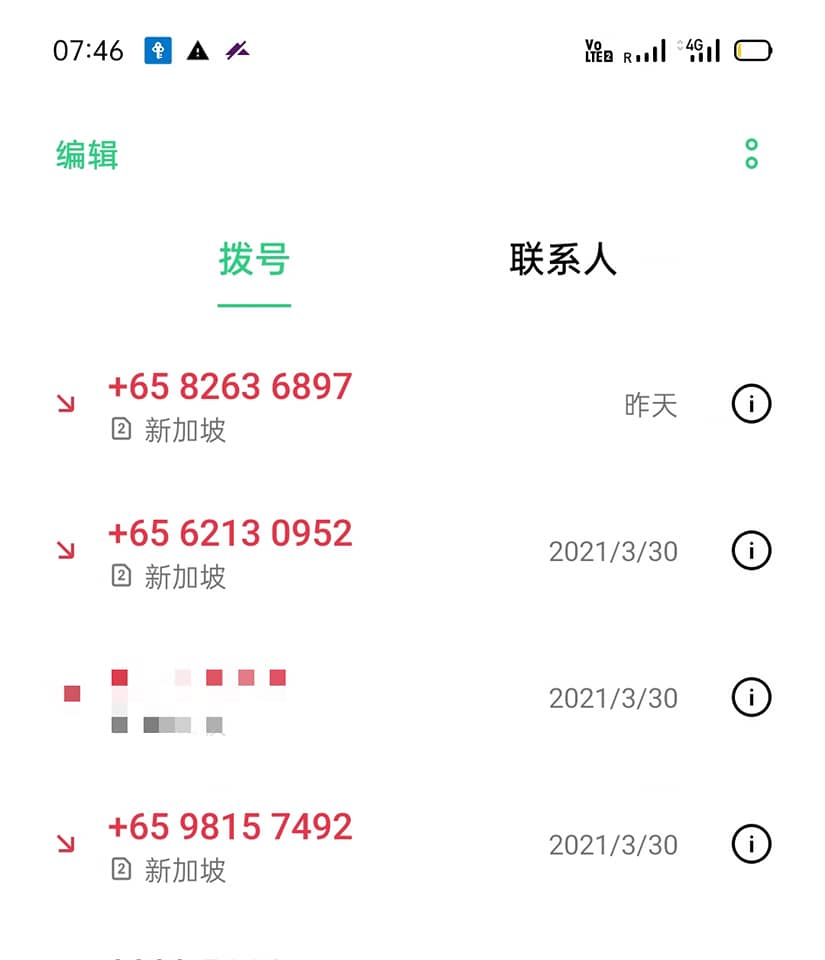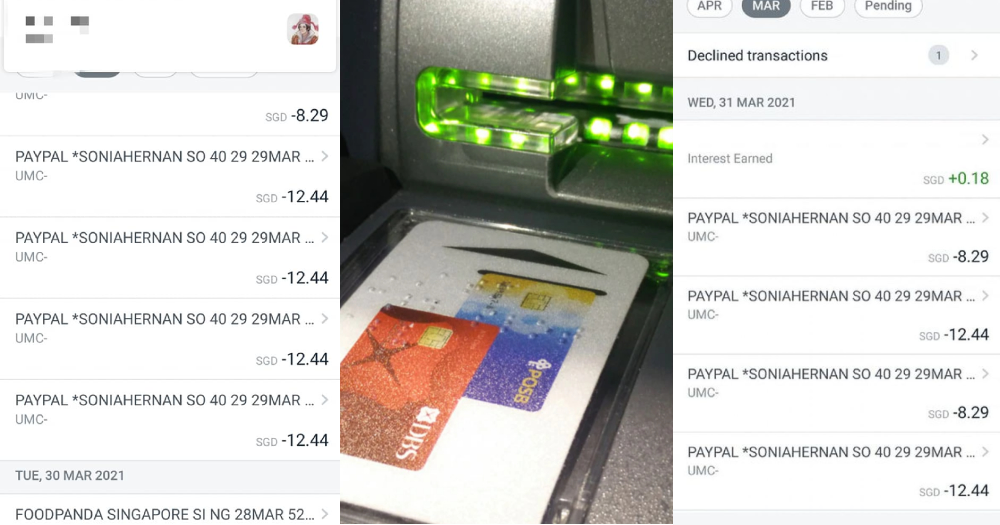A woman in Singapore, Xin Yu recently shared how she fell victim to a series of unauthorised fraudulent transactions involving withdrawals from her bank account.
Writing about her experience in the Facebook group Let's Go Singapore (走,新加坡) on Apr. 1, she shared that the withdrawals reduced her bank account balance to S$7.
PayPal withdrawals reduced balance to S$7
The woman only realised her POSB account had insufficient funds when she was denied a S$50 withdrawal.
She also noticed that her balance was S$7.
The minimum amount for a POSB ATM withdrawal is S$20.
According to screenshots of a transaction history, a total of S$182 had been deducted from her bank account balance by what appears to be a PayPal user named Soniahernan.
There were multiple transactions on March 31, involving amounts from S$8.29 to S$12.44.
 Image from Xin Yu's Facebook post
Image from Xin Yu's Facebook post
Bank notified immediately
Xin Yu called POSB immediately to alert them of the fraudulent transactions.
Her debit card was subsequently suspended and replaced.
She was also assured by the bank that the money would be returned within five working days. The bank would also investigate the matter.
With an account balance of S$7, Xin Yu said she was unable to pay for her rent, which was due on that day. Fortunately, she had some cash left for her daily expenses from a previous withdrawal a few days ago.
She was also thankful that the scammer was not able to make off with more money as she only had S$189 in her account.
As she was due to receive her salary a few days later, she informed her company to withhold her salary in light of the incident.
Unclear how it happened
Speaking to Mothership, the woman shared that she's uncertain how such transactions happened.
While she mentioned that she had received calls from unknown numbers on Mar. 30, all of which she left unanswered, it is unclear if these calls are linked to the fraudulent transactions.
 Image from Xin Yu's Facebook post
Image from Xin Yu's Facebook post
Protecting yourself from scams
In her post, Xin Yu urged others to ignore calls from unknown numbers and avoid suspicious websites and links.
Additionally, in a separate post, the woman advised readers to keep track of their bank transactions and to practice greater caution with online payments.
Since Apr. 15, 2020, only incoming calls from international numbers have the "+" sign prefix and local numbers with "+" prefix are likely to be scams.
In these calls, scammers might impersonate authority figures and government agencies.
Those who do answer such calls should not readily disclose personal details or make immediate payments if the caller's identity is suspect.
With phishing scams on the rise, it is recommended to make verifications through the organisation's main hotline or through NCPC Anti-Scam hotline before proceeding to share your private information.
Top image via PORB website, Xin Yu/FB
If you like what you read, follow us on Facebook, Instagram, Twitter and Telegram to get the latest updates.
